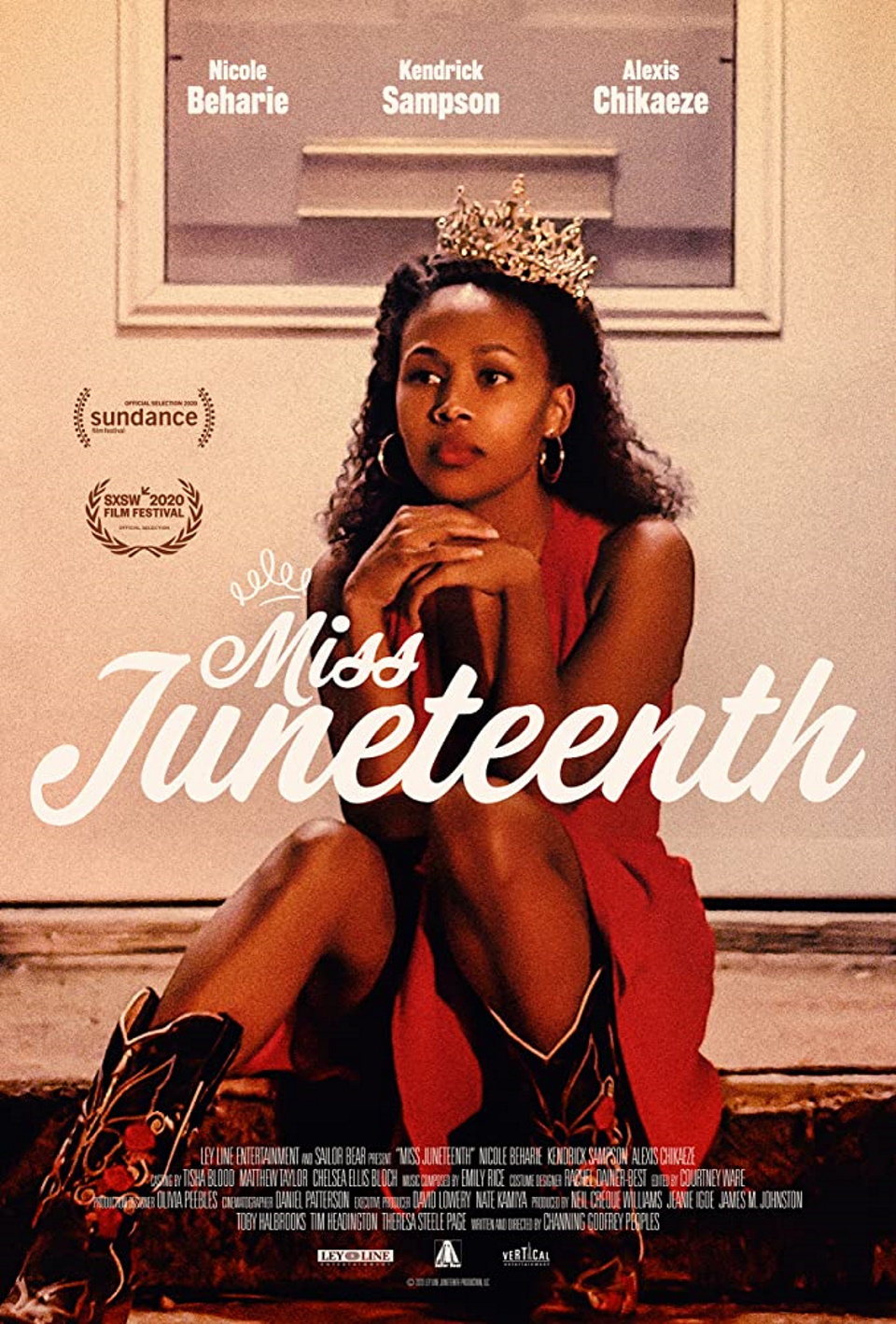By Imara Ikhumen
“Miss Juneteenth” was a joy for me to watch. I feel that it’s not often that
black filmic dramas exist away from the context of white oppressors. While the
film does inherently allude to a history (and present) of oppression through the
title of “Miss Juneteenth” (for those of you who do not know, Juneteenth refers
to June 19th 1865, the day on which the slaves of the U.S. were officially declared
free), it still holds its own as a sincere, real, and universal story of a woman who
is doing everything she can to give her daughter a better life than her own. In
any context, this is a story of black joy and black triumph. “Miss Juneteenth” is
accessible to and should be viewed by people of all races, but it does what films
in general have mostly failed to do: it doesn’t cater to the expectations of white
audiences.
While independent films do tend to be less prejudiced in casting, it is still not
often that dark-skinned women are portrayed as beautiful or desirable in film.
They don’t get to be themselves in scarves or without straight wigs. “Miss
Juneteenth” is different. It is about black people trying to thrive in their own
element, and it focuses on showing the beauty of black culture and black love
(between mother and daughter) as they fight for stability and happiness.
Together the director, Channing Godfrey Peoples, and the cinematographer,
Daniel Patterson use rich, gorgeous, bright yellows or perhaps golden hues to
add a sunny vibrancy and hope to every scene. There is also a consistent
attention to auditory ambience, which helps the viewer remain engulfed in the
world.
With Oscar-worthy acting from Nicole Beharie and Kendrick Sampson, a
heartwarming story, and naturally incorporated history lessons that we don’t
get in school, “Miss Juneteenth” is a must-watch for any viewer who enjoys a
well-written but concise drama.




